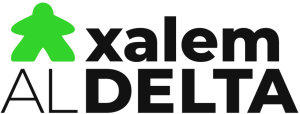Room maintenance requirements, warehouse maintenance, machinery and equipment
The accommodation of Masia Tinet, being the best connoisseur of its own facilities, has designed this specific plan for your company with the aim of minimizing the hygienic-sanitary risks in the COVID-19 and make public this information for consultation of all those people interested or who want to make a reservation. The company is firmly committed to risk management, leading the systematic implementation of measures aimed at minimizing it. Therefore, the different processes will be coordinated with each other, always complying with the recommendations and guidelines issued by the health authorities in relation to the special measures before COVID-19.
First of all, the risk assessment has been carried out and adapted to our characteristics. The following issues have been taken into account in the health risk assessment:
The capacity of the accommodation is for a maximum of 15 people spread over 6 rooms. We have a living room of 45 square meters and another 120 square meters of terrace. The pool area has 50 square meters, which is an occupancy ratio that is not difficult to maintain safety distances in common areas, mainly in the area of catering and services. Whether the services take place inside the building or outside, there are no difficulties in terms of safety and hygiene measures. There is a specific space for the reception and disinfection of goods and suppliers outside the kitchen. The kitchen meets all the requirements of hygiene and space, as well as facilities to implement the new safety standards and protocols. Cleaning protocols will be strengthened in all facilities. Priority will be given to carrying out activities and staying for clients in outdoor spaces, terraces, gardens and in the 1.5 hectares of available property.
Disinfectant hydroalcoholic gel.
Safe use of disinfectant cleaners, for example, freshly prepared bleach dilution (chlorine concentration 1 g / L, prepared with 1:50 dilution of bleach concentration 40-50 g / L). Concentrations of ethanol 62-71% or hydrogen peroxide at 0.5% in one minute are also effective, as well as the use of other authorized alternative methods and contactless body temperature control thermometers.
Others:
Small trays and boots for disinfecting money or bags for clothes and paper tablecloths for individual use, basic hygiene measures for the kitchen and common areas. Garbage with lid and pedal in the rooms. The tasks and work processes comply with the safety standards established by the health authorities. This implies: the obligatory use of masks and personal hygiene measures, especially when we interact with customers and occasionally with employees. Priority will be given to the use of uniforms and specific clothing for work, which must be washed daily. Hand washing should be observed as often as appropriate (with soap and water or hydroalcoholic solution).
Non-contact thermometers will be available to measure body temperature when the situation requires it.

The contingency plan will be available for consultation.
Informative measures
Staff protection and organization measures

Reception service
Restaurant service
Rooms
Common use areas
Kitchen area
In addition to the cleaning protocols already outlined, the following actions are indicated:
The following rules are added to the maintenance plan for the facilities and services:
Room maintenance:
